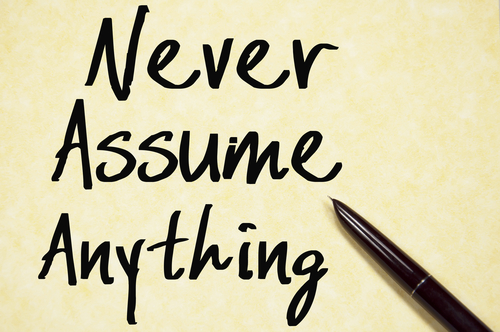Fully understand what the patient wants BEFORE presenting a solution. There are probably thousands of pounds worth of new opportunities within your existing client base. Have a good conversation with your patient, ask lots of questions and listen carefully to the answers. Do not jump in too quickly with solutions, or make assumptions.
A few weeks ago, I heard a story that I am going to share with you, about the value of one of the most important skills you can possess.
It came from a dental technician who had recently taken my two-day Ethical Sales & Communication Programme. A dentist had sent one of his patients on to the technician. The patient was a middle-aged lady, and she went to the technician for a shade assessment on a new crown she was having made. Whilst the patient was there, the technician got into a detailed conversation about her smile; the patient opened up and told the technician that it really wasn’t just the one crown that she was not happy with, but all her crowns. She went on to say that she also was not happy with the gaps at the front of her teeth. She then went on to inform the technician that, as a result, she would not smile in public.
This affected her self-confidence and had been going on for a number of years. The result of the conversation was that the patient decided not to have just one crown made, but, instead, decided to have some veneers and three crowns. The patient was delighted and, as you can imagine, so was the dentist when he heard about the conversation. So, the end result was a treatment plan several times bigger than what was originally anticipated, and, more importantly, a much happier patient. She finally got what she wanted. The story outlines a few failures on behalf of the dentist:
1. He probably did not ask enough questions to find out what the patient really wanted
2. He probably made an assumption about what the patient wanted
3. He probably jumped in too quickly to present his solutions
I have trained more than 8,500 dentists and their team members on my two-day Ethical Sales & Communication Programme and, in my opinion, the dentist made the biggest communication mistake, which is being made all over the world. This is presenting a solution to the patient, without first finding out what the patient wants. In other words, they make an assumption about what the client needs and, most importantly, wants. When you do this, the patient ends up with the wrong solution to their problem and, thus, the wrong treatment plan. For the dentist, you are missing out on many thousands of pounds worth of opportunities; these are often sitting in your existing client base. Imagine you have a medical problem and you visit the doctor. After literally a 30-second consultation, the doctor types a prescription, hands it over to you and informs you that this will solve your problem. How would you feel? You would feel short changed, unimportant and probably not trust the doctor. Although this is a totally different example, there are some similarities. The dentist prescribed what he thought the prescription was, but really did not truly understand the patient’s problems.
Most dentists who have taken my programme tell me that because they are asking a lot more questions and really listening attentively to the answers, their patients are informing them of problems they would like addressed. When the dentist asks them why they have not told them this before, often, the patient’s reply is, “Well you have never really asked me before.” Because of these new conversations, the results have been an increase in new opportunities, stronger relationships with their patients and increased profits. There are probably thousands of pounds worth of new opportunities within your existing client base. All you need to do is have a good conversation with them, ask lots of questions and listen carefully to the answers. Do not jump in too quickly with solutions, or make assumptions. After all, when you assume, you can make an ass out of you and an ass out of me!

 Get our 3 minute lunch and learn videos to your inbox.
Get our 3 minute lunch and learn videos to your inbox.

ONE OF OUR TEAM
Two Reds Are Better Than One - Ashley Latter & Chris Barrow